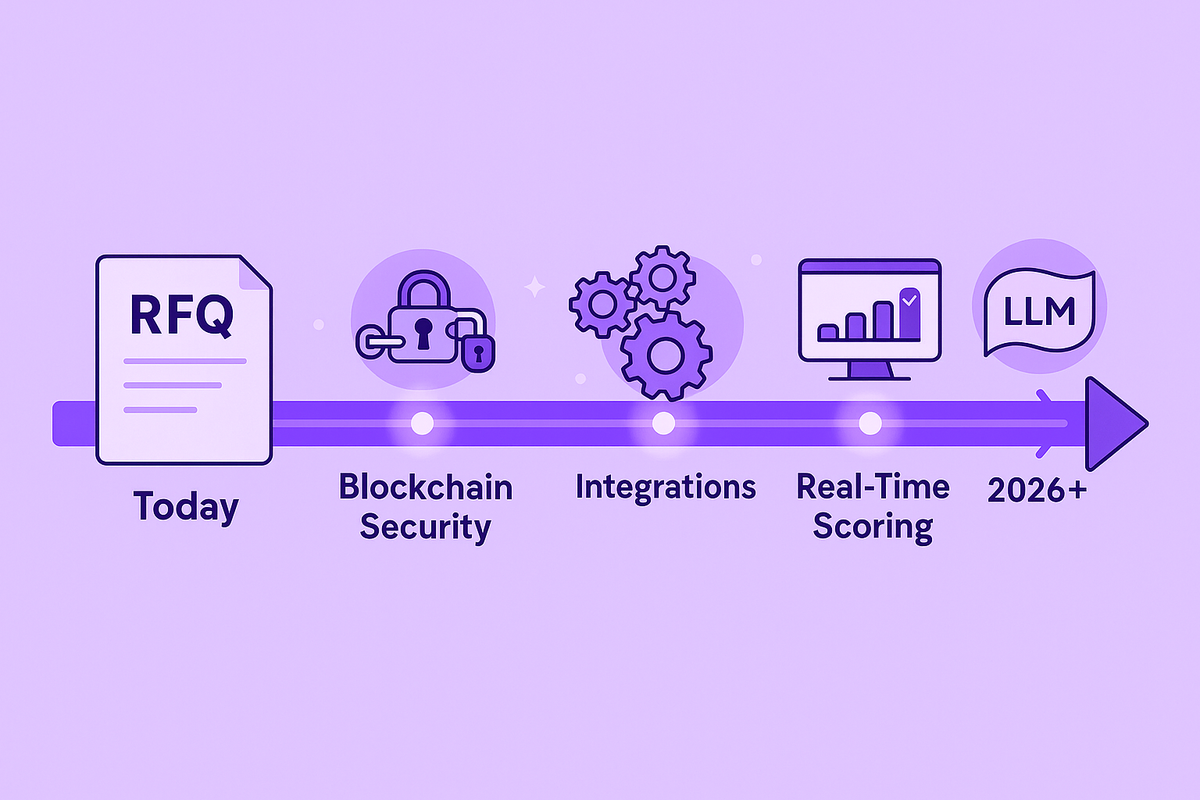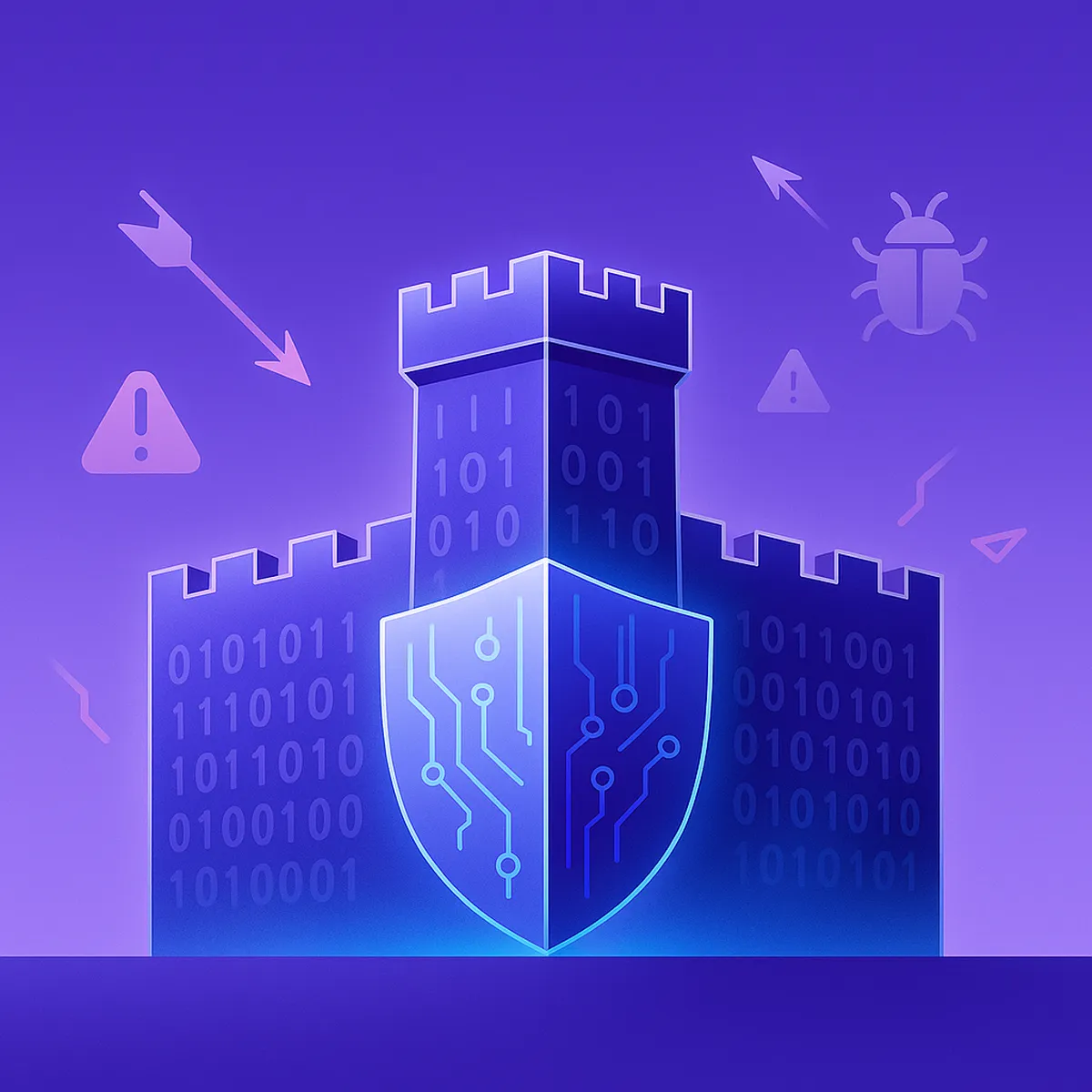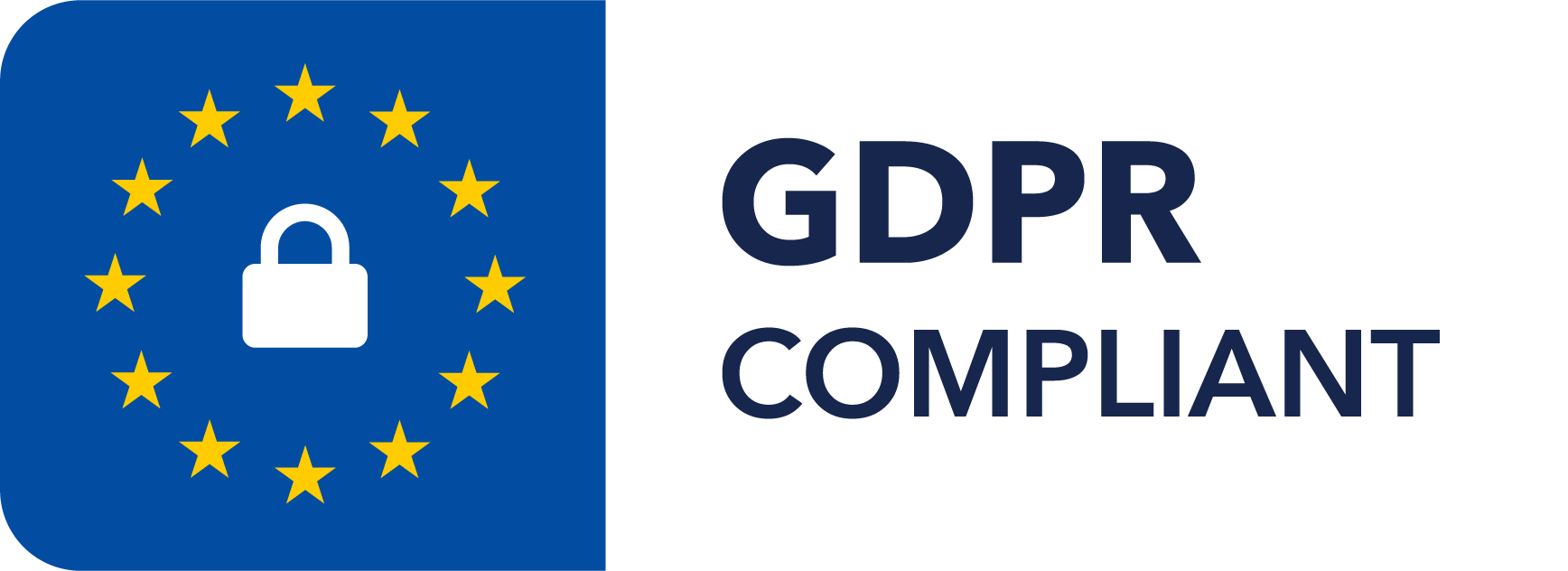DDQs Meaning: A Guide to Due Diligence Questionnaires
August 6, 2025
By
Evie Secilmis

Most teams see Due Diligence Questionnaires as the final hurdle in a long RFP process. But what if you viewed them differently? Understanding the true DDQs meaning goes beyond just filling out forms; it's your opportunity to build serious trust with a potential partner. These documents are evolving fast, and the technology behind DDQs and RFPs is changing the game. Staying ahead of these trends isn't just about efficiency—it's about gaining a competitive edge and making sure every answer reinforces your company's strength and reliability.
Before diving into future trends, it's essential to understand what DDQS means. DDQS stands for Due Diligence Questionnaires, which are standardized documents used by companies to assess potential partners, vendors, or investment opportunities. These questionnaires help businesses evaluate the risks and benefits associated with a new business relationship. They provide a structured way to gather crucial information, ensuring that businesses can make informed decisions based on comprehensive data.
What is a Due Diligence Questionnaire (DDQ)?
Think of a Due Diligence Questionnaire, or DDQ, as a formal background check for a business partnership. It’s a document filled with specific questions designed to verify that a potential partner, vendor, or investment target is playing by the rules. The main goal is to assess risk. A DDQ digs into a company's operations to confirm it complies with industry regulations, laws, and best practices, especially concerning critical areas like cybersecurity and financial stability. It’s less about what a company can do for you and more about whether it’s safe and reliable to work with them in the first place.
Essentially, a DDQ is your tool for uncovering potential red flags before you sign on the dotted line. By asking targeted questions about a company’s policies, procedures, and history, you can get a clear picture of its health and integrity. This process helps you make informed decisions, protecting your own business from the financial, legal, and reputational damage that can come from partnering with a non-compliant or unstable company. It’s a structured way to ensure that any new business relationship is built on a solid and transparent foundation.
DDQ vs. RFP: Understanding the Key Differences
While DDQs and RFPs (Requests for Proposals) are both questionnaires used in business dealings, they serve very different purposes and appear at different stages of the process. An RFP is a call for solutions; you have a problem or a project, and you’re asking potential vendors to propose how they would solve it. A DDQ, on the other hand, is a call for proof; you’ve likely already chosen a potential partner, and now you need to verify their credentials and assess any underlying risks. Understanding this distinction is key to managing your procurement and sales cycles effectively.
Purpose: Risk Assessment vs. Project Solution
The core purpose of an RFP is to evaluate and compare solutions. Companies issue RFPs to find the best vendor to meet a specific need, focusing on factors like features, technical capabilities, project timeline, and cost. In contrast, a DDQ is all about risk assessment. Its questions are designed to confirm a company's operational integrity, checking for compliance with legal standards, financial health, and robust security protocols. An RFP asks, "How can you solve our problem?" while a DDQ asks, "Can we trust you to be a safe and reliable partner?"
Timing: Late Stage vs. Early Stage
You'll typically encounter RFPs early in the procurement process. They are used to gather proposals from a wide range of vendors, helping the buyer create a shortlist of the most promising candidates. DDQs come into play much later, usually after a preferred vendor has been selected but before a contract is finalized. The DDQ serves as the final verification step, ensuring there are no hidden liabilities or compliance issues that could jeopardize the partnership. It’s the last checkpoint before making a formal commitment.
Responders: Legal and Finance vs. Sales and Technical
Because RFPs focus on solutions, responses are generally prepared by sales, marketing, and technical teams who can best articulate the value and functionality of their product or service. DDQs require a different set of experts. Since the questions revolve around legal, financial, and security matters, the responsibility for responding typically falls to a company’s legal, finance, and IT or compliance departments. The information requested is often highly sensitive, which is why the process is almost always governed by a Non-Disclosure Agreement (NDA).
Why Do Companies Use DDQs?
Companies use DDQs as a fundamental risk management tool across various business scenarios. Whenever a business is about to enter a significant relationship—be it a merger, a new vendor contract, or a strategic partnership—it needs to look under the hood of the other organization. A DDQ provides a structured framework for this investigation, ensuring that all critical areas are examined consistently. This systematic approach helps uncover potential liabilities, compliance gaps, or operational weaknesses that might not be apparent on the surface. Ultimately, it’s about protecting the company from unforeseen risks and making smarter, more secure business decisions.
Mergers and Acquisitions (M&A)
In the high-stakes world of mergers and acquisitions, DDQs are non-negotiable. Before one company acquires another, the buyer needs a comprehensive understanding of what it’s actually buying—including any hidden debts, pending lawsuits, or compliance failures. A DDQ is the primary tool used to uncover these potential problems. It allows the acquiring company to thoroughly vet the target’s financial health, operational stability, and legal standing, ensuring the investment won't come with costly or damaging surprises down the road. This deep dive helps validate the valuation of the deal and informs the final negotiations.
Vendor Onboarding and Management
When bringing a new vendor into your ecosystem, especially one that will handle sensitive data or perform a critical function, a DDQ is essential. It helps you verify that the vendor meets your company's standards for security, compliance, and operational reliability. Using a standardized DDQ ensures that every potential vendor is evaluated against the same criteria, creating a consistent and defensible onboarding process. This is crucial for maintaining a secure supply chain and protecting your business from third-party risks. It’s a proactive step to ensure your partners operate at the same level of integrity as you do.
Investment and Partnership Vetting
Investors and potential strategic partners rely on DDQs to scrutinize a company before committing capital or resources. For investors, a DDQ provides a detailed look at a company's financial stability, market position, and internal governance, helping them assess the viability and potential return on their investment. Similarly, when two companies are considering a joint venture or strategic alliance, a DDQ helps both sides understand each other's operational practices and risk profiles. This mutual vetting process builds trust and ensures the partnership is built on a foundation of transparency and shared standards.
Contract Renewals
Due diligence isn't a one-time event. Companies often use DDQs during contract renewals to re-evaluate their existing vendors and partners. Business environments, regulations, and security threats are constantly changing, and a vendor that was compliant a few years ago may have developed gaps. A renewal-stage DDQ confirms that the partner continues to meet your standards and has adapted to new requirements, such as updated data privacy laws. This periodic check-up ensures that long-term relationships remain secure and beneficial, preventing complacency from turning into a liability.
Access to Sensitive Data
Anytime a third party is granted access to your company’s sensitive information—whether it's customer data, intellectual property, or financial records—a DDQ is a critical line of defense. The questionnaire will probe deep into the vendor's cybersecurity measures, data handling protocols, and incident response plans. This is vital for ensuring they have the proper controls in place to protect your data from breaches and misuse. In an era of increasing cyber threats and stringent data privacy regulations, verifying a partner's security posture through a DDQ is an essential part of corporate responsibility.
Common Topics Covered in a DDQ
A thorough DDQ is comprehensive, touching on nearly every aspect of a business's operations to build a complete risk profile. While the specific questions can be tailored to the industry and the nature of the partnership, most DDQs are built around a few core pillars. These topics are designed to give a holistic view of the company's health, from its financial footing to its ability to withstand a crisis. Key areas of inquiry typically include detailed information about the company's structure, its legal and regulatory standing, its cybersecurity framework, and its plans for business continuity.
Company and Financial Information
This section establishes the basics of the business. It asks for details on the company’s legal structure, ownership, and key leadership. It also requires a deep dive into financial health, requesting documents like audited financial statements, revenue history, and projections. The goal is to verify that the company is a stable and legitimate entity with the financial resources to operate reliably. This information helps assess the long-term viability of the potential partner and ensures they aren't facing hidden financial distress that could impact their ability to deliver on their promises.
Compliance and Legal Status
Here, the DDQ focuses on a company's adherence to laws and regulations. Questions will cover topics like necessary licenses and permits, compliance with industry-specific standards (like HIPAA in healthcare), and adherence to data privacy laws such as GDPR or CCPA. This section will also ask about any past, pending, or potential litigation. Understanding a company's legal and compliance track record is crucial for avoiding partnerships that could expose your own business to legal trouble or reputational harm. It’s about ensuring your potential partner operates ethically and within the bounds of the law.
Cybersecurity and Data Security Policies
In today's digital world, this is one of the most critical sections of any DDQ. It includes a detailed examination of a company's information security program. Questions will cover everything from network security infrastructure and data encryption methods to employee security training and incident response plans. The goal is to confirm that the company has robust measures in place to protect its systems and any sensitive data it handles. A weak cybersecurity posture in a partner can become a direct threat to your own organization, making this a non-negotiable area of scrutiny.
Crisis Recovery and Business Continuity
No business is immune to disruption, whether it's a natural disaster, a cyberattack, or a supply chain failure. This section of the DDQ assesses a company's preparedness for such events. It asks for details about their business continuity plan (BCP) and disaster recovery (DR) plan. This includes information on data backup procedures, recovery time objectives, and communication strategies for crises. You need to know that if something goes wrong, your partner has a solid plan to get back on their feet quickly and continue providing their services without significant interruption to your operations.
Standardized Types of DDQs
While many companies create custom DDQs, there are also standardized questionnaires developed by industry groups and regulatory bodies. These templates are designed to address the specific risks and compliance requirements of a particular sector, saving time and ensuring that key areas aren't overlooked. Using a standardized DDQ can also make the process more efficient for responders, as they may already have answers prepared for a common format. These established frameworks provide a reliable baseline for due diligence and are widely recognized as best practice in their respective fields.
ESG DDQ (Environmental, Social, and Governance)
As sustainability and corporate responsibility become more important, ESG DDQs are growing in popularity. This questionnaire focuses on a company's performance in three key areas: its environmental impact (like carbon emissions), its social practices (including labor standards and community relations), and its corporate governance (such as board diversity and anti-corruption policies). Investors and partners use ESG DDQs to ensure a company's values align with their own and to mitigate risks associated with poor ethical or environmental practices.
ILPA DDQ (Institutional Limited Partners Association)
The ILPA DDQ is the gold standard in the private equity world. It was created by the Institutional Limited Partners Association to provide a comprehensive framework for limited partners (LPs) to evaluate general partners (GPs) before investing in a fund. The questionnaire covers topics like fund strategy, team composition, investment processes, and past performance. Its standardized format streamlines the due diligence process for LPs and provides a consistent basis for comparing different investment opportunities across the industry.
FCPA and ABAC DDQs (Anti-Corruption)
These DDQs are specifically designed to assess a company's compliance with anti-bribery and anti-corruption (ABAC) laws, such as the U.S. Foreign Corrupt Practices Act (FCPA). When doing business internationally, companies use these questionnaires to vet third-party agents, distributors, and partners to ensure they have strong anti-corruption policies and controls in place. This is a critical step in preventing illegal payments and protecting the company from severe legal and financial penalties associated with bribery.
Correspondent Banking DDQ
In the financial services industry, the Correspondent Banking Due Diligence Questionnaire (CBDDQ) is a vital tool. Developed by the Wolfsberg Group, an association of global banks, this DDQ is used to assess the anti-money laundering (AML) and counter-terrorist financing (CTF) risks of partnering with other financial institutions. It provides a standardized way for banks to gather the information needed to understand and manage the risks associated with their correspondent banking relationships, ensuring compliance with global regulatory standards.
The DDQ Process: Who's Involved and How It Works
The DDQ process is a structured, multi-step engagement that requires careful coordination. It begins with the requesting company identifying the need for due diligence and preparing the right questionnaire. Once sent, the receiving company must gather information from various internal experts to provide accurate and complete answers. This back-and-forth can involve clarification requests and the sharing of extensive documentation, all while being governed by strict confidentiality. The process concludes with the requesting company analyzing the responses to make a final decision about the partnership.
Creating and Customizing the Questionnaire
The first step is to select or create the DDQ. A company might start with a standardized industry template or use its own proprietary questionnaire. In either case, the document is often customized to address the specific risks associated with the potential partner and the nature of the proposed relationship. For example, a DDQ for a software vendor that will handle customer data will have a much heavier focus on cybersecurity than one for a raw materials supplier. The goal is to create a questionnaire that is both thorough and relevant, ensuring all critical areas are checked consistently.
Key Participants: From Legal to Finance
Responding to a DDQ is a team sport. It’s not a task that one person or even one department can handle alone. The questionnaire touches on so many different aspects of a business that it requires input from subject matter experts across the organization. Typically, the legal team will handle questions on compliance and litigation, the finance department will provide financial statements and data, and the IT and security teams will address cybersecurity and data protection. Coordinating these efforts can be complex, which is why many teams rely on a centralized response management platform to streamline collaboration and ensure consistency.
The Importance of a Non-Disclosure Agreement (NDA)
Given the incredibly sensitive information exchanged during the DDQ process—from financial records to security protocols—confidentiality is paramount. Before a DDQ is even sent, both parties will almost always sign a Non-Disclosure Agreement (NDA). This legal contract binds the requesting party to keep all the information they receive confidential and to use it only for the purpose of evaluating the potential partnership. An NDA protects the responding company from having its proprietary information exposed and creates a foundation of trust that is essential for a transparent and productive due diligence process.
Why DDQs are a Game-Changer for RFPs
DDQS plays a significant role in the RFP process. RFPs, or Requests for Proposals, are documents issued by organizations seeking proposals from potential vendors or service providers. DDQS helps streamline this process by providing a standardized way to gather and evaluate information from multiple vendors. By standardizing the evaluation process, DDQS ensures that all potential partners are assessed on a level playing field, reducing bias and increasing transparency. This not only aids in making better decisions but also fosters trust and reliability among stakeholders involved in the RFP process.
The DDQS Technology Trends You Need to Know
Before we look into the future, let's examine the current trends shaping DDQS technology. These trends lay the foundation for future advancements and highlight areas where businesses can currently optimize their processes.
Letting AI and Automation Do the Heavy Lifting
One of the most significant trends in DDQS technology is the integration of automation and artificial intelligence (AI). These technologies help automate the data collection process, reducing the time and effort required to complete DDQS. AI algorithms can analyze responses, highlight inconsistencies, and even suggest areas for further investigation. This reduces human error and enhances the reliability of the due diligence process. Moreover, AI-driven insights can uncover hidden patterns or risks that might not be apparent through manual analysis, offering a deeper understanding of potential partnerships.
Moving Your DDQ Process to the Cloud
Cloud-based DDQS platforms are becoming increasingly popular. These solutions offer flexibility, scalability, and accessibility, allowing businesses to manage their DDQS processes from anywhere, at any time. Cloud-based platforms also facilitate collaboration among team members, improving efficiency and communication. The ability to access data in real-time from various devices ensures that decision-makers have the most current information at their fingertips. Additionally, cloud solutions often come with regular updates and improvements, ensuring that businesses are always using the latest technology without the need for significant IT investments.
Why Data Security is a Top Priority
With the increasing amount of sensitive information exchanged during the DDQS process, data security has become a top priority. Modern DDQS platforms are incorporating advanced security measures, such as encryption and multi-factor authentication, to protect sensitive data from unauthorized access. As cyber threats continue to evolve, these platforms are also implementing proactive security measures like anomaly detection and robust access controls. This ensures that businesses can maintain the confidentiality and integrity of their data, fostering trust with partners and clients.
What's Next for DDQS Technology?
As technology continues to evolve, several future trends are poised to shape the DDQS landscape. These trends promise to bring transformative changes, helping businesses to adapt and thrive in a dynamic environment.
How Blockchain Adds a New Layer of Trust
Blockchain technology, known for its security and transparency, is expected to play a more significant role in DDQS technology. Blockchain can provide a secure and tamper-proof record of all transactions and interactions during the DDQS process, ensuring data integrity and trustworthiness. By decentralizing data storage, blockchain reduces the risk of single-point failures and enhances data accessibility. Additionally, smart contracts on blockchain can automate various aspects of the DDQS process, ensuring that all parties meet their obligations without the need for intermediaries.
Getting Smarter Insights with Big Data
The integration of big data analytics into DDQS technology will allow businesses to gain deeper insights into potential partners and vendors. By analyzing large datasets, companies can identify patterns and trends, assess risks more accurately, and make data-driven decisions. Big data analytics can also help in predicting future performance, enabling businesses to make proactive decisions. Furthermore, these insights can be customized to suit specific industry needs, providing tailored solutions that enhance strategic planning.
Collaborating in Real-Time on Your DDQs
As businesses become more global, real-time collaboration tools are becoming increasingly important. Future DDQS platforms will likely incorporate advanced collaboration features, such as video conferencing and instant messaging, to facilitate communication between teams and stakeholders, regardless of their location. This ensures that all parties are on the same page, reducing misunderstandings and enhancing project alignment. Moreover, the integration of collaborative tools with DDQS platforms can streamline workflows, allowing for faster and more efficient decision-making processes.
Tailoring DDQs to Your Specific Needs
Future DDQS technology will offer greater personalization and customization options. Businesses will be able to tailor DDQS templates to their specific needs, ensuring they gather the most relevant information for their unique requirements. This trend will lead to more efficient and effective due diligence processes. Customization options can also include automated workflow configurations, which adapt to the specific operational needs of a company, further enhancing efficiency and user experience.
What These Future Trends Mean for You
The future trends in DDQS technology will have a significant impact on businesses across various industries. Understanding these impacts can help organizations prepare and strategically align their operations with emerging technologies.
Getting More Done in Less Time
By leveraging automation, AI, and big data analytics, businesses can streamline their DDQS processes, reducing the time and effort required to complete due diligence. This increased efficiency will allow companies to focus on other critical aspects of their operations, ultimately improving productivity. Furthermore, these technologies enable teams to handle more projects simultaneously, optimizing resource utilization and driving growth. The reduction in manual tasks also decreases the likelihood of errors, leading to more accurate and reliable outcomes.
A Smarter Way to Manage Risk
The integration of blockchain and big data analytics will enable businesses to assess risks more accurately and make informed decisions. This enhanced risk management capability will help companies identify potential issues early on, mitigating risks and protecting their interests. By using predictive analytics, businesses can anticipate potential challenges and proactively implement mitigation strategies. Moreover, having a transparent and immutable record of due diligence activities enhances accountability, ensuring compliance with legal and regulatory requirements.
Finding Tools That Grow with Your Business
Cloud-based DDQS platforms and real-time collaboration tools will provide businesses with greater flexibility and scalability. Companies can quickly adapt to changing business environments and scale their operations as needed, ensuring they remain competitive in an ever-evolving marketplace. This adaptability allows businesses to seize new opportunities swiftly, responding to market demands with agility. Additionally, scalable solutions mean that companies can expand their operations without significant upfront investments in infrastructure.
Staying Secure and Compliant
As data security becomes increasingly important, future DDQS technology will prioritize robust security measures. Businesses can ensure their sensitive information remains protected, and they can maintain compliance with industry regulations and standards. Advanced security protocols, coupled with regular audits and compliance checks, will safeguard data integrity and confidentiality. This not only protects against data breaches but also builds customer trust and loyalty, as clients are assured of stringent data protection measures.
Strategic Tips for Managing DDQs
Whether you're the one asking the questions or the one answering them, a well-managed DDQ process can make all the difference. It’s about more than just checking boxes; it’s about building trust and setting the stage for a successful partnership. A smooth process shows respect for everyone's time and leads to better, more informed decisions. Let's break down some practical tips for both sides of the table to make the experience less of a headache and more of a strategic advantage.
For Companies Creating DDQs
When you're issuing a DDQ, your goal is to get clear, concise information that helps you accurately assess risk. A thoughtful approach to creating your questionnaire not only makes your evaluation easier but also signals to potential partners that you are organized and professional. A poorly constructed DDQ can lead to confusing responses and a longer, more frustrating vetting process for your team.
Focus on Key Risk Areas
Your DDQ shouldn't be a fishing expedition. Instead of asking every question under the sun, concentrate on the areas that pose the most significant risk to your specific partnership. Think about what could realistically go wrong. Are you concerned about data security, financial stability, or regulatory compliance? Tailor your questions to uncover potential problems in these critical zones. This targeted approach helps you get the meaningful information you need without burying your team—and your potential partner—in unnecessary paperwork. It shows you've done your homework and value their time.
Use Standardized Templates for Comparison
When you’re evaluating multiple vendors, consistency is your best friend. Using a standardized DDQ template ensures that you ask every candidate the same questions in the same order. This makes it much easier to compare responses side-by-side and evaluate everyone on a level playing field. A standard format removes variables and helps you focus on the quality of the answers, not the structure of the document. It also streamlines the entire review process, allowing your team to move more quickly and efficiently from data collection to decision-making.
For Companies Responding to DDQs
Responding to a DDQ is your opportunity to shine and build confidence with a potential partner. It’s a chance to demonstrate your company's stability, security, and reliability. A prompt, thorough, and professional response can set you apart from the competition and pave the way for a strong business relationship. Treating each DDQ with care and attention to detail is a direct reflection of how you’ll treat the partnership itself.
Be Thorough and Transparent
When you're filling out a DDQ, honesty and completeness are non-negotiable. Vague or incomplete answers can look like you're hiding something, which is an immediate red flag for any potential partner. Take the time to provide detailed, accurate responses, and if a question doesn't apply, explain why. Being transparent, even about past challenges and how you've addressed them, can actually build more trust than a perfect-on-paper response. Your goal is to give the other company a clear and truthful picture of your operations.
Build a Centralized Knowledge Base
Answering DDQs can feel like a repetitive fire drill, especially when different team members are scrambling to find the right information. This is where a centralized knowledge base becomes a lifesaver. By storing all your approved answers, company policies, security certifications, and supporting documents in one accessible place, you ensure consistency and accuracy across all your responses. An AI-powered platform can take this a step further, helping you instantly generate first drafts and manage your content library, which dramatically cuts down on response time and frees up your team for more strategic work.
Keep Your Information Current
Submitting a DDQ with outdated information is a costly mistake that can undermine a potential deal. Policies get updated, certifications expire, and key metrics change. Regularly reviewing and refreshing the content in your knowledge base is crucial. A proactive approach prevents last-minute scrambles and ensures you’re always putting your best foot forward. Modern response management tools can even help by proactively identifying information across your connected systems that may be out of date, ensuring your answers are always accurate and reliable.
How to Future-Proof Your DDQ Process
To stay ahead in the rapidly changing world of DDQS technology, businesses should take the following steps. Proactive preparation ensures that organizations are well-equipped to embrace new technologies and the opportunities they present.
Start with Training and Education
Ensure your team is well-versed in the latest DDQS technologies and trends. Investing in training and education will enable your employees to effectively utilize new tools and processes, maximizing the benefits for your organization. Continuous learning programs can be implemented to keep the workforce updated with the latest advancements. Encouraging certification and professional development not only enhances skills but also boosts employee morale and retention.
Lean into Digital Transformation
Adopting digital solutions, such as cloud-based platforms and AI-driven tools, will help your business stay competitive and agile. Embrace digital transformation to streamline your DDQS processes and enhance overall efficiency. Digital transformation also involves rethinking business models and processes to leverage new technologies effectively. By fostering a digital-first mindset, businesses can unlock new revenue streams and create innovative solutions tailored to market needs.
Build a Culture That Welcomes Change
Encourage a culture of innovation within your organization. By fostering an environment where employees feel empowered to explore new ideas and technologies, your business can stay ahead of the curve and capitalize on emerging trends. This involves encouraging cross-functional collaboration and open communication channels to share insights and ideas. Recognizing and rewarding innovative contributions can further inspire creativity and drive forward-thinking initiatives.
Your Next Steps with DDQs
The future of DDQS technology is filled with exciting possibilities. By staying informed about the latest trends and embracing new technologies, businesses can improve their due diligence processes, enhance risk management, and ultimately drive growth and success. As the world of DDQS continues to evolve, it's essential for businesses to remain adaptable and forward-thinking, ensuring they are well-prepared for the challenges and opportunities that lie ahead. Embracing these innovations will not only streamline operations but also position companies as leaders in their respective industries, ready to meet the demands of a fast-paced digital world.
Want to learn more about DDQs? Check out the article What is a DDQ? A Guide to Answering them Faster
Frequently Asked Questions
When do I deal with an RFP versus a DDQ? Think of it like this: an RFP is the audition, and a DDQ is the background check. You’ll face an RFP early in the sales process when a potential client is trying to figure out if your solution is the right fit for their problem. The DDQ comes much later, usually after they’ve decided they want to work with you. At this stage, they’re no longer asking what you can do, but rather verifying that your business is stable, secure, and compliant enough for them to trust you with their partnership.
We're always scrambling to answer DDQs. What's the best way to get organized? The most effective step you can take is to create a single source of truth for your company’s information. Instead of having your legal, finance, and IT teams hunt for the same answers every time a DDQ comes in, build a centralized library of approved responses and supporting documents. This ensures your answers are always consistent and accurate. Having this knowledge base ready means you can respond faster and free up your experts to focus on their actual jobs instead of answering repetitive questionnaires.
What if we have to disclose something negative in a DDQ, like a past security incident? This is actually an opportunity to build serious trust. Hiding a past issue is far more damaging than addressing it head-on. Be transparent about what happened, but don't stop there. The key is to clearly explain the concrete steps you took to fix the problem and the robust measures you’ve put in place to ensure it never happens again. This shows maturity and accountability, which are qualities every company looks for in a reliable partner.
We're a small company. Do we really need a formal process for this? Absolutely. In fact, a streamlined DDQ process can be a huge advantage for a smaller business. When you respond to a DDQ with prompt, thorough, and professional answers, you punch above your weight and show potential partners that you are just as organized and reliable as a larger enterprise. Starting with a simple, centralized knowledge base now will save you countless headaches and help you build a foundation for secure growth as you scale.
All this talk about AI and blockchain sounds complicated. Do I really need to worry about that now? While it's good to be aware of new technology, you don't need to become a blockchain expert overnight. The core of a good DDQ process will always be having accurate, up-to-date, and easily accessible information. The best way to prepare for the future is to focus on getting your house in order today. By building a strong knowledge base and a smooth workflow, you'll be perfectly positioned to adopt new tools like AI when the time is right, making the transition feel like a natural next step rather than a massive leap.
Key Takeaways
- Know the Difference Between Proving and Proposing: A DDQ isn't an RFP. Its purpose is to verify your company's stability and security, not to pitch a solution. Answering with a focus on risk assessment and compliance builds the trust needed to close the deal.
- Create a Centralized Knowledge Hub: Stop scrambling for answers. A well-maintained, central repository for all your company's compliance, security, and financial information is your most valuable asset for responding to DDQs quickly and consistently.
- Use Technology for a Competitive Edge: Modern tools are changing the DDQ game. Using AI and automation doesn't just speed up your responses; it ensures accuracy and frees up your team to focus on strategy, turning a tedious process into a way to stand out.
Related Articles
Share this post
Link copied!




















